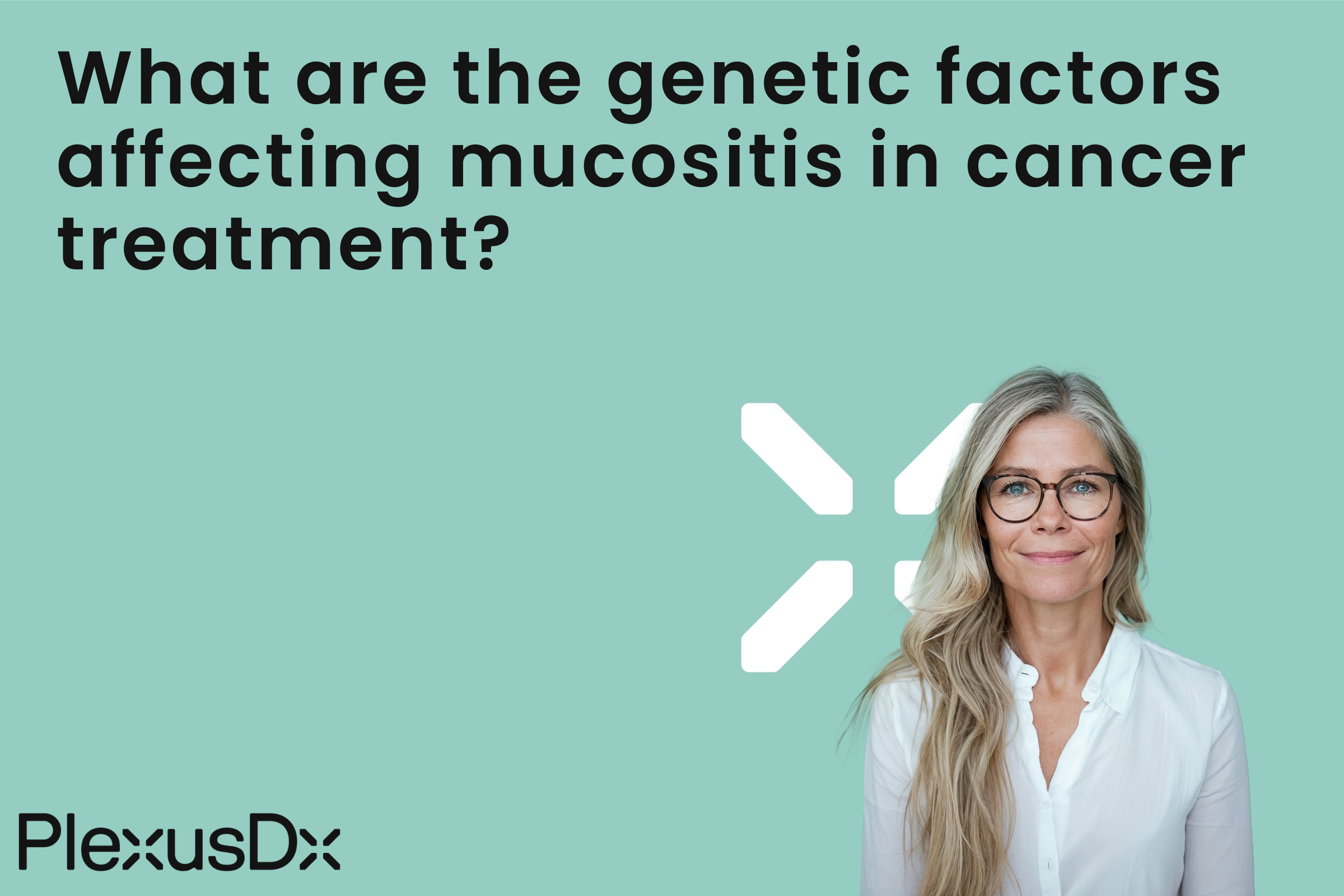Mucositis: A Major Challenge in Cancer Treatment
Cancer treatment becomes even harder when patients develop mucositis which inflames mucous membranes and considerably reduces their ability to eat and speak. The painful state that arises as a common side effect of chemotherapy and radiation therapy stresses the necessity of comprehending genetic factors that determine health outcomes. This blog post explores the impact of mucositis and its management strategies while examining the potential of genetic testing to personalize healthcare solutions.
The Impact of Mucositis
Mucositis presents a major difficulty for cancer patients because it involves inflammation in the mucous membranes that line the digestive system. Oral mucositis occurs most frequently in the oral cavity and displays symptoms ranging from slight pain to intense bleeding and ulceration which severely impacts patients' quality of life. Mucositis which develops as a result of cancer therapies including chemotherapy and radiation therapy shows variable onset and intensity based on individual genetic makeup.
Genetic Factors and Mucositis
Studies indicate that genetic makeup influences how likely a person is to develop mucositis. Current research evaluation gives the direct genetic model evidence a score of 2 out of 5 which demonstrates low quality and highlights the necessity for additional study. Research into the genetic foundations of mucositis holds the potential to develop personalized treatment plans that cater to individual patient requirements.
Management Strategies
- Pain Management: The use of analgesics can be explored to help reduce the pain linked to mucositis. Work with your healthcare provider to identify appropriate pain relief methods that match your particular requirements.
- Oral Care: Good oral hygiene practices help prevent infections and aid in healing for affected mucosal tissues. During cancer treatment maintain oral health by using the recommended mouthwashes and oral care products.
- Dietary Modifications: Modify your food choices to eat soft foods which are simple to swallow and gentle against mucous membranes. Maintain adequate hydration and nutritional levels throughout treatment to support your health.
Following these practical recommendations as part of your daily routine helps you manage mucositis challenges and improves your treatment experience.
Conclusion
Mucositis stands as a major obstacle for cancer patients undergoing treatment because it affects their nutritional intake and their overall health condition. Further research is needed to establish conclusive links between genetic factors and an individual's predisposition to mucositis. Through personalized healthcare strategies and genetic testing options individuals obtain significant knowledge about their health status and well-being.
Start Your Health Journey Today
Start exploring your health options today by checking out PlexusDx's Precision Health & Wellness tests through their official website PlexusDx.com along with Amazon and Walmart. Genetic insights enable individuals to start a personalized healthcare journey which specifically addresses their distinct medical requirements and obstacles. First prioritize your health and seek professional medical advice to manage complex health conditions such as mucositis. We can help people manage their health and well-being by using genetic insights to create personalized health plans.

Share:
What health conditions are associated with the FABP2 genetic trait?
Effects of GCH1 gene variants on heart health and pain sensitivity?